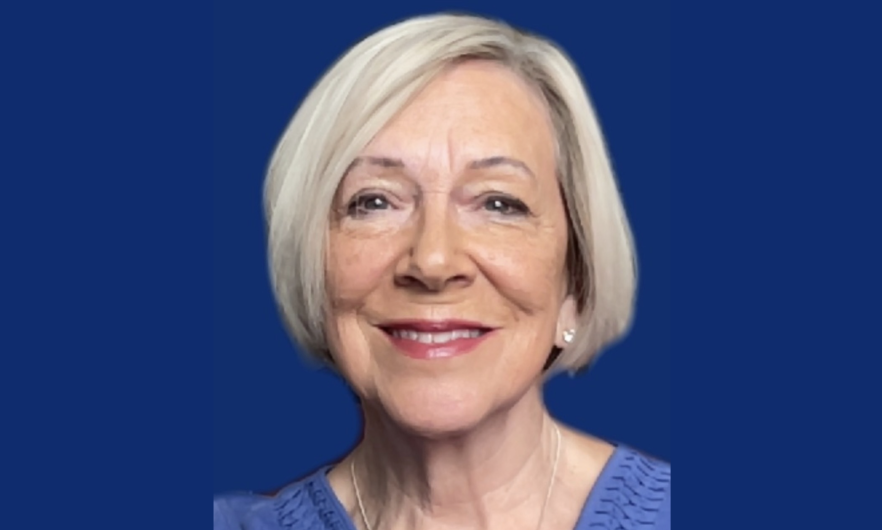Meet Our New Associate Director!

Introducing our new associate director, Dr. Lindsay J. Thompson, PhD! Dr. Thompson is a professor at the Johns Hopkins Carey Business School and is also affiliated with the Bloomberg American Health Initiative and the Johns Hopkins Bloomberg School of Public Health. Dr. Thompson will focus on Goal #1: “Facilitating collaborations between communities, universities, and healthcare delivery systems to build collective capacity for achieving health equity in Baltimore,” leading the Bunting Neighborhood Leadership Program.
Get to know Dr. Thompson below!
Where are you from?
I have been in Baltimore since 1976, raised my children here, and now have grandchildren here, so this is my home. Originally, I am from Minneapolis and still have family there as well as strong Minnesota roots, but Baltimore is home.
What is your research focus?
Almost all my work involves values and ethics of justice, equity, and care, both societally and individually. The societal aspect of values focuses on the livability of cities and communities: Healthy planet, healthy people, resilient communities, empowered citizens, and shared prosperity. I am particularly interested in moral stress and how people can draw on capabilities of moral resilience to manage and rebound from moral distress. Cynda Rushton, a good friend and colleague, has done a lot of work in this area with health clinicians and we are both looking forward to exploring moral stress in other high-pressure, public interfacing work professions such as portfolio management, public safety, social work, and teaching.
As an associate director, what are you looking forward to most?
I am looking forward to getting more deeply involved with the community-engaged work of the Urban Health Institute, especially getting to know the Bunting Fellows, and exploring ways to make connections between UHI community engagement in Baltimore City and the community-engaged we are doing at Carey through CityLab and the Bmore Collab. I think there are many opportunities for collaboration.
What is your favorite book or movie?
My favorite book or movie is usually one I’m reading or watching right now. So today, it is Colored Television, by Danzy Senna, about the hopes and struggles of a biracial career academic. The writing is brilliant and her insight into the dynamics of race in the US is both funny and sobering.
What is a hobby or interest that you enjoy outside of work?
In addition to being/doing things with my Baltimore friends, I love reliving the joys and crises of learning to be human through my grandchildren. I have an almost three-year-old granddaughter and an eight-month-old grandson, both living in Towson with their parents, so I see them a lot. Beyond that, I love going to the “open stage” playwriting events that my older daughter hosts at the Peabody Heights Brewery for local theater artists in Baltimore. I am very involved in cultural reparation, especially a project at Mount Clare in Carroll Park, a colonial industrial plantation that we are reconstituting with some of Baltimore’s leading Black cultural historians and preservationists to tell and celebrate the story of African genius in the creation of America’s first great industrial fortune owned by the Carroll family. I also have a huge extended family, so I enjoy traveling, talking -- mostly about ideas, books, current events, life -- and just being with them.
Where is your favorite place to visit?
Rome. There are dozens of places I love to visit, but there is just no place like Rome. The depth and breadth of its accretionary history, culture, food, and ambience is endlessly inspiring and energizing.
Name 5 people you would invite to your dream dinner party.
Only five? Eleanor Roosevelt, Angela Davis, Louise Erdrich, Henry Louis Gates, and the Pocasset Wampanoag Sunksqua Weetamoo. I’d love to resurrect a Vestal Virgin and of course I would invite my sisters and daughters. There is enough room at my table for all of them.
What is one thing you’d like friends of the UHI to know?
I would like them to know how much Baltimore City owes to the work UHI has been doing for so many years to illuminate and repair racial injustice in our communities. The UHI was among the first to activate civic conscience about racial disparities and inequities in social determinants of health and wealth, incarceration, punitive treatment of returning citizens, livable housing, and other issues that have activated reparative policy initiatives and social practices throughout our city and state. We are far from finished with this work, but the UHI is a champion in building a citywide culture of health.
